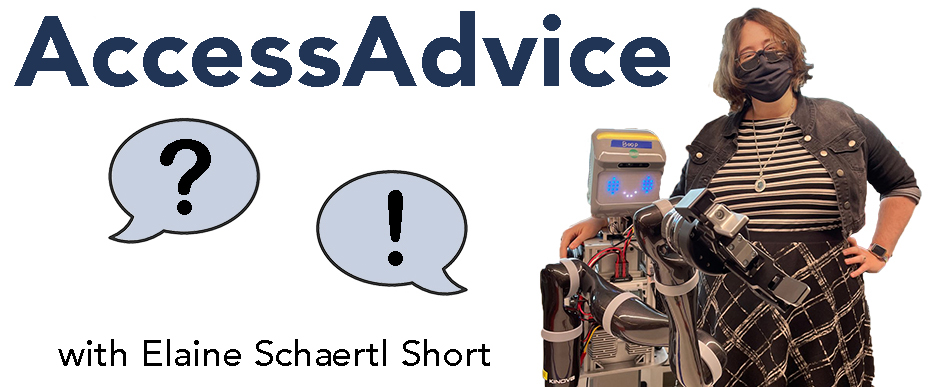AccessAdvice: Getting Involved in Research

[This question has been lightly edited for clarity and to remove identifying detail]
Dear AccessAdvice,
Currently, I have a full-time job where I work from home. My manager is flexible with my work schedule, so I can take some time out of my work day to have meetings and work on my day job later that day. Down the road, I'm thinking of enrolling in a master's program to hopefully pursue a research career in human-computer interaction (HCI) in industry or academia.
How do I complete an independent research study to see if I want to pursue a research career? One option is to do an independent research study through my alma mater’s continuing education program, but I'd have to enroll and get approval from a professor beforehand.
I’d also like to know:
- How do I contact professors about this and how do I ask for approval for an independent research study from a professor?
- How do I highlight my research experience; what should I highlight in my resume?
- What other options might I have to do an independent research project?
From,
Research Into Master's
Dear Research,
I really like this guide from a colleague of mine on how to get involved in research as an undergraduate. Your situation is a little different, but many of the key points are the same: Figure out what you’re interested in and who you’d like to work with, then reach out, following any instructions on their websites about how to do so. You’ll want to keep your initial email fairly short and highlight any key points that might make them interested in talking to you. In your case, you might write something like the following (edited to make sure it sounds like your voice and not mine):
“Dear Professor [Lastname],
I’m writing to find out if you have any opportunities for research in your group. I’m an alum of [University] and am currently thinking about going back to grad school to pursue a research career in human-computer interaction. Before I do, I was hoping to get some hands-on research experience in [the professor’s field]. [something complimentary, like “I always really enjoyed my CS classes, especially your class on [x]” or “I read your paper on [y] and was really interested in your approach to [z]”]. Because of this, I am especially interested in working with your group if possible.
Attached please find my resume; I would be happy to answer any questions or set up a time to meet if that would be helpful. Thank you for your time and consideration.
Best,
[your name]”
You’re likely to have the best luck with faculty with whom you have a prior connection; if there was someone you worked with in undergrad, they would be a good person to reach out to. If you know a colleague of the person you want to work with, you can also mention this in your letter; something like “I worked with [name] at [university] during my undergraduate years, and completed a project on [topic].” Just be sure that the person you mention would have nice things to say about you; faculty do reach out to each other to ask about students!
In your resume, make sure you highlight any relevant experience or projects; just like when you’re applying for any other job, you want to make sure you mention major accomplishments. Just keep in mind that faculty typically won’t be interested in business-related accomplishments like sales or process improvements; instead, you’ll want to mention projects and activities that show off your relevant skills. For HCI, this might be something like leading the addition of a new feature to a software project (especially a UI or UX feature) or conducting a focus group. You can also mention personal projects that show these skills, like building a cool 3D clock or making a contribution to an open-source project.
As you reach out, keep in mind that faculty receive many requests for this type of project. If you get a “no”, don’t take it personally, just move on to the next potential advisor. If you find that you seem to be underqualified, you can start to build up your experience with personal projects (for HCI, writing a fun or useful app for yourself, making contributions to open source projects, or doing something cool with your personal website would all be good options). Once you’ve completed some of this type of project, you’ll have more to show off and more to talk to prospective research supervisors about.
I recommend also working through your network as best you can; the best way to get someone to agree to supervise a research project is to have some demonstrated research experience, even if it’s not in the same field. So if you know someone who would be willing to do a project with you, you can start there and then work your way towards your desired field. Finally, if you really can’t get anyone to talk to you and you don’t have good connections to work with, then you might be better off trying to find a formal program like the one at your alma mater. If you decide you want to go for a Ph.D., then the CSGrad4US program might be a good option for you, or you can see if your alma mater has any programs to connect returning students to research projects.
Good luck!